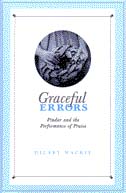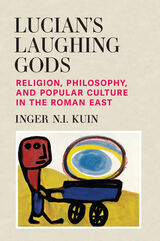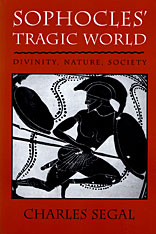
Reading Pindar's poems with their public performance in mind, Hilary Mackie suggests that the poet was forced to tread a precarious path: weighing the interests of various groups of audience members against one another, balancing praise of the victorious athlete with praise of the deeds of mythic heroes, and catering at the same time to an uncertain future. Mackie's new approach illuminates apparent contradictions in the poet's pronouncements by bringing to the fore the variety of messages conveyed in his wishes and prayers. Her innovative examination of the moment-to-moment dynamic between Pindar and his audience shows that the poet's performance often contained one message for the victor and his family, and quite another for the gods.
Graceful Errors significantly changes our perspective on Pindar's work, providing a lucid appreciation of Pindaric poetry that takes into account the oral context of these poems' performance. It will be of interest not only to classicists but also to scholars and students interested in oral performance, the social function of poetry, and the role and status of poets in traditional cultures, whether ancient or modern.
Hilary Mackie is Associate Professor of Classics at Rice University.

In Lucian's Laughing Gods, author Inger N. I. Kuin argues that in ancient Greek thought, comedic depictions of divinities were not necessarily desacralizing. In religion, laughter was accommodated to such an extent as to actually be constituent of some ritual practices, and the gods were imagined either to reciprocate or push back against human laughter—they were never deflated by it. Lucian uses the gods as comic characters, but in doing so, he does not automatically negate their power. Instead, with his depiction of the gods and of how they relate to humans—frivolous, insecure, callous—Lucian challenges the dominant theologies of his day as he refuses to interpret the gods as ethical models. This book contextualizes Lucian’s comedic performances in the intellectual life of the second century CE Roman East broadly, including philosophy, early Christian thought, and popular culture (dance, fables, standard jokes, etc.). His texts are analyzed as providing a window onto non-elite attitudes and experiences, and methodologies from religious studies and the sociology of religion are used to conceptualize Lucian’s engagement with the religiosity of his contemporaries.

Much has been written about the heroic figures of Sophocles’ powerful dramas. Now Charles Segal focuses our attention not on individual heroes and heroines, but on the world that inspired and motivated their actions—a universe of family, city, nature, and the supernatural. He shows how these ancient masterpieces offer insight into the abiding question of tragedy: how one can make sense of a world that involves so much apparently meaningless violence and suffering.
In a series of engagingly written interconnected essays, Segal studies five of Sophocles’ seven extant plays: Ajax, Oedipus Tyrannus, Philoctetes, Antigone, and the often neglected Trachinian Women. He examines the language and structure of the plays from several interpretive perspectives, drawing both on traditional philological analysis and on current literary and cultural theory. He pays particular attention to the mythic and ritual backgrounds of the plays, noting Sophocles’ reinterpretation of the ancient myths. His delineation of the heroes and their tragedies encompasses their relations with city and family, conflicts between men and women, defiance of social institutions, and the interaction of society, nature, and the gods. Segal’s analysis sheds new light on Sophocles’ plays—among the most widely read works of classical literature—and on their implications for Greek views on the gods, moral life, and sexuality.
READERS
Browse our collection.
PUBLISHERS
See BiblioVault's publisher services.
STUDENT SERVICES
Files for college accessibility offices.
UChicago Accessibility Resources
home | accessibility | search | about | contact us
BiblioVault ® 2001 - 2024
The University of Chicago Press









